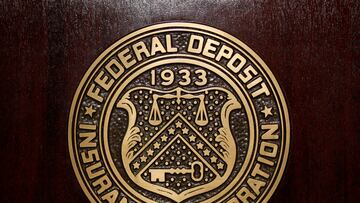Republic First Bank closes: what happens if you had deposits there?
Republic First Bank, a regional financial institution based in Philadelphia, this week became the the first American bank to fail since November.


The Philadelphia-based Republic First Bank this week became the first bank in the United States to fail in 2024, when it was closed by the Pennsylvania Department of Banking and Securities.
Fulton Bank to take on “substantially all deposits” at Republic Bank
In a statement on Friday, the Federal Deposit Insurance Corporation (FDIC) said it had reached a deal with Fulton Bank, a financial institution headquartered in Lancaster, Pennsylvania, to “assume substantially all of the deposits and purchase substantially all of the assets” of Republic First Bank, which did business as Republic Bank.
Republic Bank had around $6 billion in total assets and $4 billion in total deposits, the FDIC said.
Philadelphia-based Republic Bank was closed late today by Pennsylvania bank regulators, which appointed the FDIC as receiver. To protect depositors, we entered into an agreement with Fulton Bank to assume substantially all deposits and assets of Republic.https://t.co/Fzusk2L74Q pic.twitter.com/b91USjtr4Z
— FDIC (@FDICgov) April 26, 2024
Customers automatically become Fulton Bank depositors
The government agency added that Republic Bank’s 32 branches in Pennsylvania, New Jersey and New York would begin operating as Fulton Bank branches either this weekend or on Monday.
“This evening and over the weekend, depositors of Republic Bank can access their money by writing checks or using ATM or debit cards,” the FDIC said. “Checks drawn on Republic Bank will continue to be processed and loan customers should continue to make their payments as usual.
“Depositors of Republic Bank will become depositors of Fulton Bank so customers do not need to change their banking relationship in order to retain their deposit insurance coverage.”
How much money does FDIC protect for depositors?
If an FDIC-insured bank fails, the body guarantees that it will protect up to $250,000 in deposits made by an individual customer in qualifying accounts at that institution. So if you had a quarter of a million or less deposited at Republic Bank, the FDIC says you can expect your money to be safe.
“Since the start of FDIC insurance on January 1, 1934, no depositor has lost a penny of insured funds as a result of a failure,” the agency says.
Related stories
The FDIC keeps depositors’ money safe through its Deposit Insurance Fund (DIF), which is financed “by premiums that banks and savings associations pay” for coverage, the organisation explains.
The FDIC estimates that the failure of Republic Bank will cost the DIF $667 million. In its statement, it also noted that the institution is the first American bank to go to the wall since Citizens Bank, based in Sac City, Iowa, in November.


Complete your personal details to comment